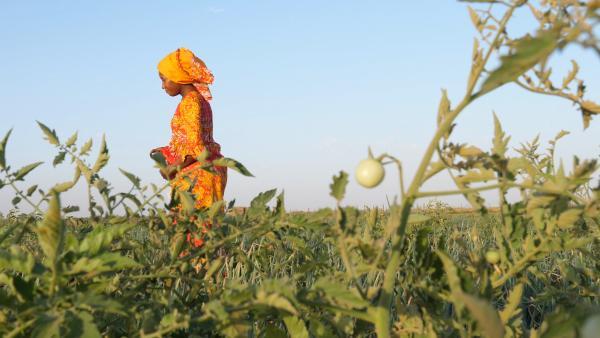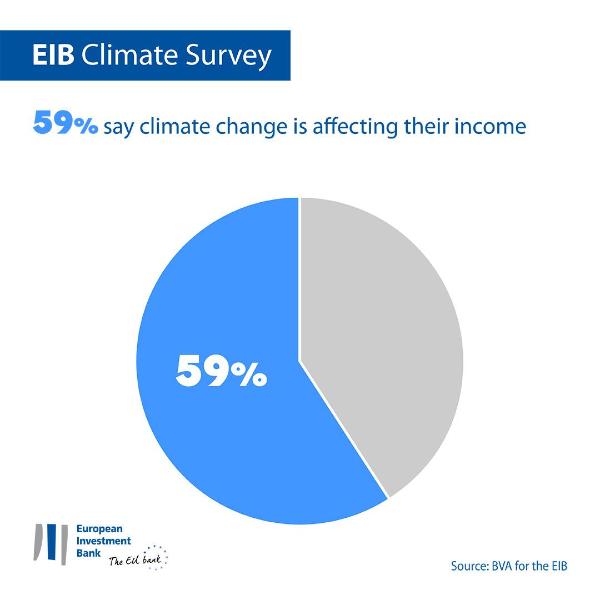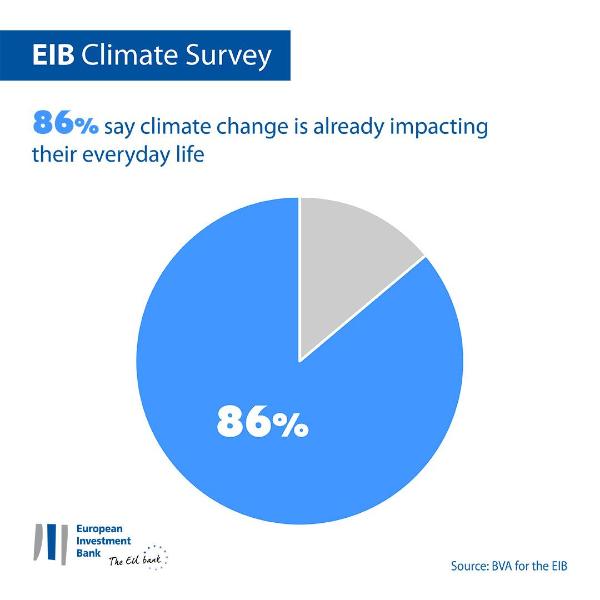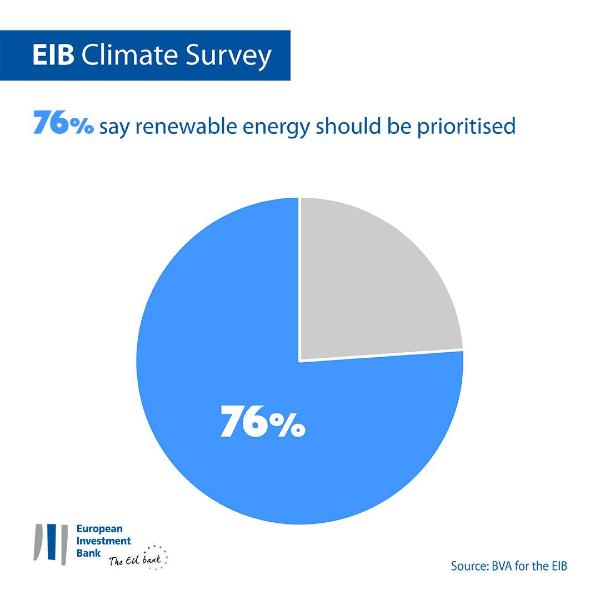
- 86% of Cameroonian respondents say climate change is already affecting their everyday life.
- 59% say climate change and environmental damage have affected their income or source of livelihood.
- 76% of Cameroonian respondents say investing in renewable energy should be prioritised.
These are some of the key findings from the first African edition[i] of the European Investment Bank’s (EIB’s) 2022 Climate Survey. The EIB is the lending arm of the European Union and the world’s largest multilateral lender for climate action projects. Since 2018, the EIB has conducted similar large-scale climate surveys across Europe, China and the United States.
Thomas Östros, vice-president of the EIB, said:
“The EIB is working closely with Cameroonian partners to accelerate climate action investment, including the construction of the largest hydropower plant in Africa, as well as investment in sustainable transport, renewable energies, waste management, sustainable cities and water investment.”
Climate change and environmental degradation
The survey results confirm that climate change has negatively affected the livelihoods of Cameroonian people, with 59% stating that their income has been affected. These losses are typically due to severe drought, rising sea levels or coastal erosion, or extreme weather events such as floods or hurricanes.

More than half of Cameroonians (56%), close to the African average of 57%, say they or people they know have already taken some form of action to adapt to the impact of climate change. Some of these initiatives include investments in water-saving technologies to reduce the impact of drought and drain clearing in advance of flooding.

Investment in energy sources
When asked about the sources of energy their country should invest in to combat climate change, 76% of Cameroonian respondents (the same as the African average of 76%) say renewable energy should be prioritised, far ahead of fossil fuels (11%).

The EIB has a long-standing relationship with Cameroon, which dates back to 1965, and finances activities in both the public and private sectors.
The EIB has operated in Africa since 1965. Since then, it has invested €59 billion in 52 African countries, supporting infrastructure projects, innovative firms and renewable energy schemes, in the public sector and private companies, from microenterprises to the largest multinationals. Africa needs several hundred billion euros a year of investments to address the challenge of climate change.
Background information
About the EIB Climate Survey
Conducted in partnership with the market research firm BVA, the first African edition of the EIB Climate Survey aims to inform the broader debate on attitudes and expectations in terms of climate action.
More than 6 000 respondents – including 200 Cameroonians – aged 15 and over from 10 African countries participated in the survey between 1 and 25 August 2022, with a representative panel for each of the countries polled.
More findings from the first African edition of the EIB Climate Survey
About the European Investment Bank
The European Investment Bank (EIB) is the long-term lending institution of the European Union and is owned by the EU Member States. The EIB Group has recently adopted its Climate Bank Roadmap to deliver on its ambitious agenda to support €1 trillion of climate action and environmental sustainability investments in the decade to 2030 and to dedicate more than 50% of EIB funding to climate action and environmental sustainability by 2025. As part of the roadmap, all new EIB Group operations have been aligned with the goals and principles of the Paris Agreement since the start of 2021.
EIB Global is the EIB Group’s new specialised arm dedicated to increasing the impact of international partnerships and development finance. EIB Global is designed to foster strong, focused partnerships within Team Europe, alongside fellow development finance institutions and civil society. EIB Global brings the EIB Group closer to local people, companies and institutions through its offices across the world.
[i] Covering Angola, Cameroon, Côte d’Ivoire, Egypt, Jordan, Kenya, Morocco, Senegal, South Africa and Tunisia.